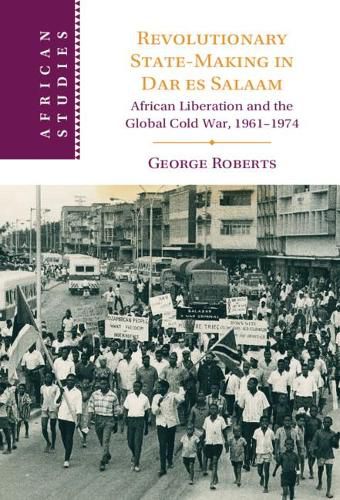Readings Newsletter
Become a Readings Member to make your shopping experience even easier.
Sign in or sign up for free!
You’re not far away from qualifying for FREE standard shipping within Australia
You’ve qualified for FREE standard shipping within Australia
The cart is loading…






Tracing Dar es Salaam’s rise and fall as an epicentre of Third World revolution, George Roberts explores the connections between the global Cold War, African liberation struggles, and Tanzania’s efforts to build a socialist state. Instead of understanding decolonisation through a national lens, he locates the intersection of these dynamics in a globally-connected city in East Africa. Revolutionary State-Making in Dar es Salaam introduces a vibrant cast of politicians, guerrilla leaders, diplomats, journalists, and intellectuals whose trajectories collided in the city. In its cosmopolitan and rumour-filled hotel bars, embassy receptions, and newspaper offices, they grappled with challenges of remaking a world after empire. Yet Dar es Salaam’s role on the frontline of the African revolution and its provocative stance towards global geopolitics came at considerable cost. Roberts explains how Tanzania’s strident anti-imperialism ultimately drove an authoritarian turn in its socialist project and tighter control over the city’s public sphere.
$9.00 standard shipping within Australia
FREE standard shipping within Australia for orders over $100.00
Express & International shipping calculated at checkout
Tracing Dar es Salaam’s rise and fall as an epicentre of Third World revolution, George Roberts explores the connections between the global Cold War, African liberation struggles, and Tanzania’s efforts to build a socialist state. Instead of understanding decolonisation through a national lens, he locates the intersection of these dynamics in a globally-connected city in East Africa. Revolutionary State-Making in Dar es Salaam introduces a vibrant cast of politicians, guerrilla leaders, diplomats, journalists, and intellectuals whose trajectories collided in the city. In its cosmopolitan and rumour-filled hotel bars, embassy receptions, and newspaper offices, they grappled with challenges of remaking a world after empire. Yet Dar es Salaam’s role on the frontline of the African revolution and its provocative stance towards global geopolitics came at considerable cost. Roberts explains how Tanzania’s strident anti-imperialism ultimately drove an authoritarian turn in its socialist project and tighter control over the city’s public sphere.